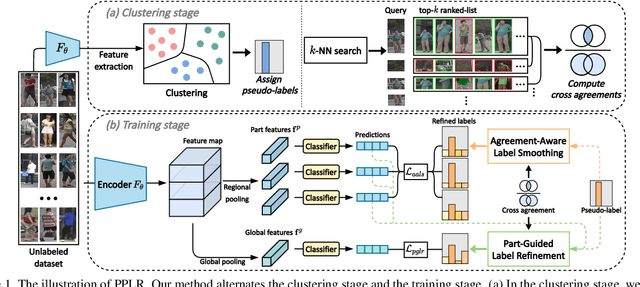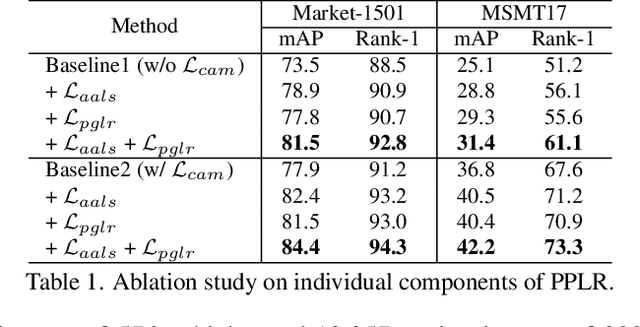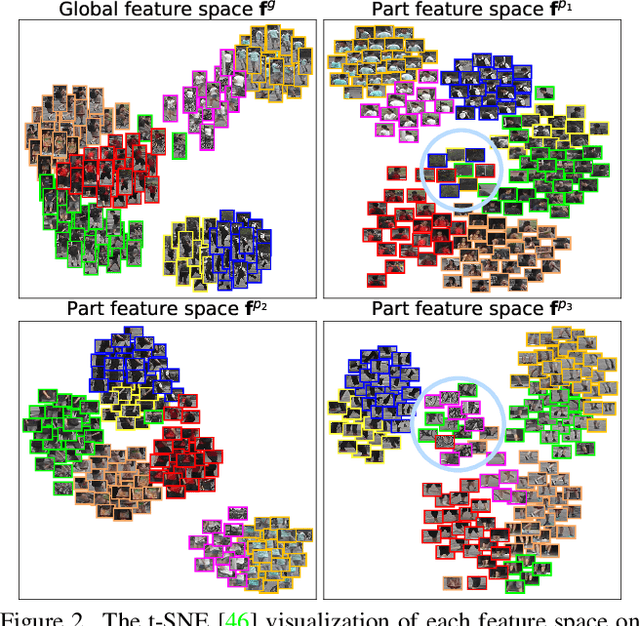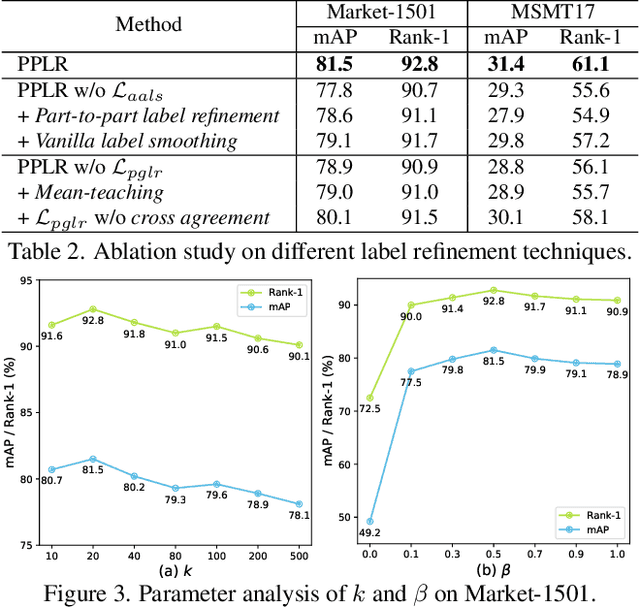Yoonki Cho
Towards Test-time Efficient Visual Place Recognition via Asymmetric Query Processing
Dec 15, 2025Abstract:Visual Place Recognition (VPR) has advanced significantly with high-capacity foundation models like DINOv2, achieving remarkable performance. Nonetheless, their substantial computational cost makes deployment on resource-constrained devices impractical. In this paper, we introduce an efficient asymmetric VPR framework that incorporates a high-capacity gallery model for offline feature extraction with a lightweight query network for online processing. A key challenge in this setting is ensuring compatibility between these heterogeneous networks, which conventional approaches address through computationally expensive k-NN-based compatible training. To overcome this, we propose a geographical memory bank that structures gallery features using geolocation metadata inherent in VPR databases, eliminating the need for exhaustive k-NN computations. Additionally, we introduce an implicit embedding augmentation technique that enhances the query network to model feature variations despite its limited capacity. Extensive experiments demonstrate that our method not only significantly reduces computational costs but also outperforms existing asymmetric retrieval techniques, establishing a new aspect for VPR in resource-limited environments. The code is available at https://github.com/jaeyoon1603/AsymVPR
Learning Event-guided Exposure-agnostic Video Frame Interpolation via Adaptive Feature Blending
Oct 26, 2025Abstract:Exposure-agnostic video frame interpolation (VFI) is a challenging task that aims to recover sharp, high-frame-rate videos from blurry, low-frame-rate inputs captured under unknown and dynamic exposure conditions. Event cameras are sensors with high temporal resolution, making them especially advantageous for this task. However, existing event-guided methods struggle to produce satisfactory results on severely low-frame-rate blurry videos due to the lack of temporal constraints. In this paper, we introduce a novel event-guided framework for exposure-agnostic VFI, addressing this limitation through two key components: a Target-adaptive Event Sampling (TES) and a Target-adaptive Importance Mapping (TIM). Specifically, TES samples events around the target timestamp and the unknown exposure time to better align them with the corresponding blurry frames. TIM then generates an importance map that considers the temporal proximity and spatial relevance of consecutive features to the target. Guided by this map, our framework adaptively blends consecutive features, allowing temporally aligned features to serve as the primary cues while spatially relevant ones offer complementary support. Extensive experiments on both synthetic and real-world datasets demonstrate the effectiveness of our approach in exposure-agnostic VFI scenarios.
Denoising Nearest Neighbor Graph via Continuous CRF for Visual Re-ranking without Fine-tuning
Dec 18, 2024



Abstract:Visual re-ranking using Nearest Neighbor graph~(NN graph) has been adapted to yield high retrieval accuracy, since it is beneficial to exploring an high-dimensional manifold and applicable without additional fine-tuning. The quality of visual re-ranking using NN graph, however, is limited to that of connectivity, i.e., edges of the NN graph. Some edges can be misconnected with negative images. This is known as a noisy edge problem, resulting in a degradation of the retrieval quality. To address this, we propose a complementary denoising method based on Continuous Conditional Random Field (C-CRF) that uses a statistical distance of our similarity-based distribution. This method employs the concept of cliques to make the process computationally feasible. We demonstrate the complementarity of our method through its application to three visual re-ranking methods, observing quality boosts in landmark retrieval and person re-identification (re-ID).
Feature Separation and Recalibration for Adversarial Robustness
Mar 24, 2023



Abstract:Deep neural networks are susceptible to adversarial attacks due to the accumulation of perturbations in the feature level, and numerous works have boosted model robustness by deactivating the non-robust feature activations that cause model mispredictions. However, we claim that these malicious activations still contain discriminative cues and that with recalibration, they can capture additional useful information for correct model predictions. To this end, we propose a novel, easy-to-plugin approach named Feature Separation and Recalibration (FSR) that recalibrates the malicious, non-robust activations for more robust feature maps through Separation and Recalibration. The Separation part disentangles the input feature map into the robust feature with activations that help the model make correct predictions and the non-robust feature with activations that are responsible for model mispredictions upon adversarial attack. The Recalibration part then adjusts the non-robust activations to restore the potentially useful cues for model predictions. Extensive experiments verify the superiority of FSR compared to traditional deactivation techniques and demonstrate that it improves the robustness of existing adversarial training methods by up to 8.57% with small computational overhead. Codes are available at https://github.com/wkim97/FSR.
Part-based Pseudo Label Refinement for Unsupervised Person Re-identification
Mar 28, 2022



Abstract:Unsupervised person re-identification (re-ID) aims at learning discriminative representations for person retrieval from unlabeled data. Recent techniques accomplish this task by using pseudo-labels, but these labels are inherently noisy and deteriorate the accuracy. To overcome this problem, several pseudo-label refinement methods have been proposed, but they neglect the fine-grained local context essential for person re-ID. In this paper, we propose a novel Part-based Pseudo Label Refinement (PPLR) framework that reduces the label noise by employing the complementary relationship between global and part features. Specifically, we design a cross agreement score as the similarity of k-nearest neighbors between feature spaces to exploit the reliable complementary relationship. Based on the cross agreement, we refine pseudo-labels of global features by ensembling the predictions of part features, which collectively alleviate the noise in global feature clustering. We further refine pseudo-labels of part features by applying label smoothing according to the suitability of given labels for each part. Thanks to the reliable complementary information provided by the cross agreement score, our PPLR effectively reduces the influence of noisy labels and learns discriminative representations with rich local contexts. Extensive experimental results on Market-1501 and MSMT17 demonstrate the effectiveness of the proposed method over the state-of-the-art performance. The code is available at https://github.com/yoonkicho/PPLR.
 Add to Chrome
Add to Chrome Add to Firefox
Add to Firefox Add to Edge
Add to Edge